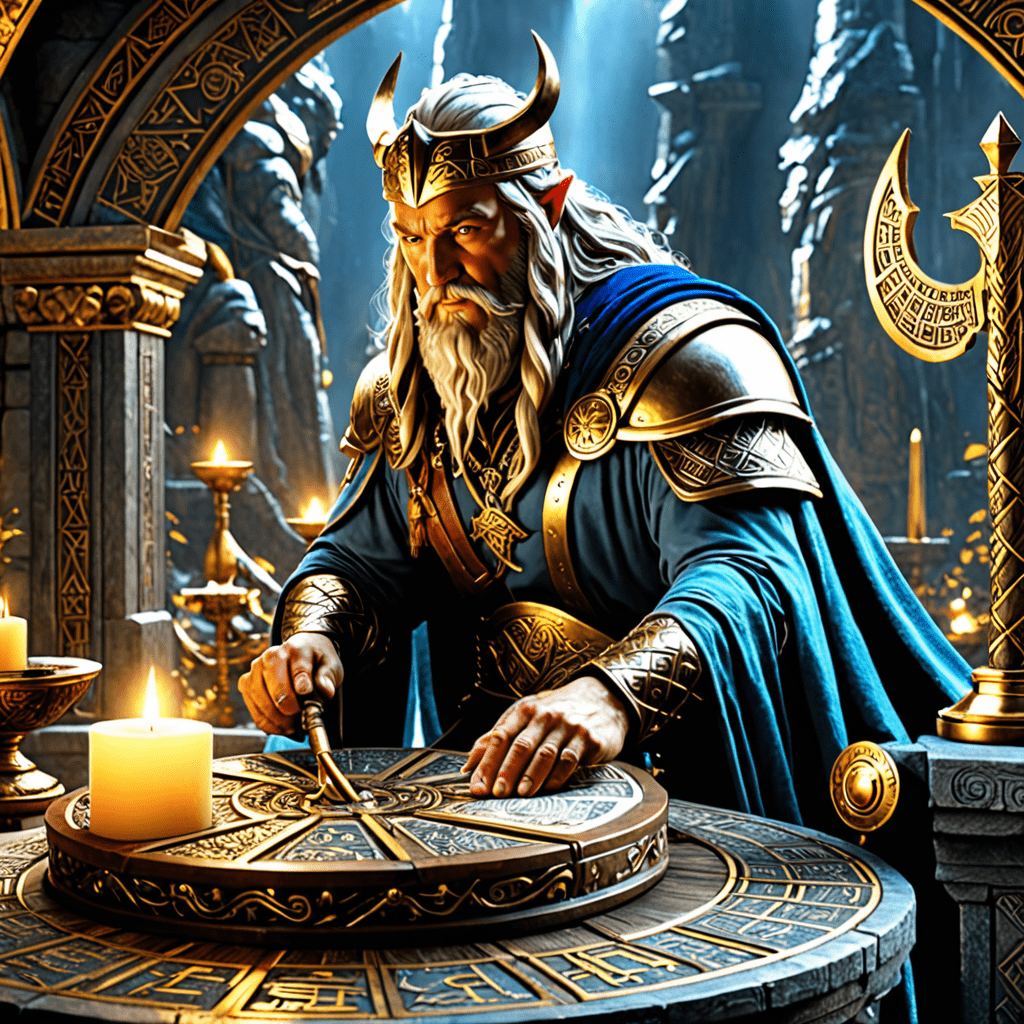The Concept of Fate and Fortune in Norse Mythology
The Nature of Fate in Norse Mythology
In Norse mythology, fate plays a central role in shaping the lives of both gods and mortals alike. The concept of fate, known as “Wyrd” or “Orlog,” is believed to be predetermined and inevitable. The Norns, three powerful female beings, are responsible for weaving the threads of fate that dictate the destiny of all beings. They reside at the Well of Urd, where they spin the threads of life, measure destinies, and decide the fates of individuals.
The Role of Fortune in Norse Mythology
Fortune, on the other hand, is often seen as a more unpredictable and capricious force in Norse mythology. While fate is usually unchangeable, fortune is characterized by its sudden and unexpected nature. The god of fortune, known as “Freyr,” is associated with prosperity, good harvests, and abundance. However, fortune can also bring about misfortune and unexpected challenges, as seen in the story of Ragnarok, the apocalyptic battle in which fate and fortune collide.
Interplay Between Fate and Free Will
Although fate is a powerful force in Norse mythology, there is also a belief in the significance of individual agency and free will. While the Norns determine the overarching fate of individuals, mortals are believed to have some degree of control over their actions and decisions. This interplay between fate and free will is a central theme in many Norse myths, highlighting the complex relationship between determinism and personal choice.
The Concept of Doom and Destiny
In Norse mythology, the concepts of doom and destiny are closely intertwined with the overarching themes of fate and fortune. Doom, known as “Ragnarok,” refers to the final destiny of the gods and the world, culminating in an apocalyptic battle that signifies the cyclical nature of existence. Destiny, on the other hand, is the individual path that each being is destined to walk, shaped by both external forces and internal choices. The intricate web of fate, fortune, doom, and destiny weaves together the rich tapestry of Norse mythology, offering insights into the complexities of the human experience.
Frequently Asked Questions about Fate and Fortune in Norse Mythology
What is the concept of fate in Norse mythology?
In Norse mythology, fate is known as “Wyrd” or “Örlög,” representing the idea that events are predetermined and interconnected. The Norns, female beings, are often associated with weaving the threads of fate at the Well of Urd.
How do the Norse view fortune?
The concept of fortune in Norse mythology is closely linked to one’s actions and the unfolding of fate. Good fortune, or “hamingja,” is believed to be tied to an individual’s personal luck or inherited family luck, influencing their life’s course.
Are fate and fortune intertwined in Norse beliefs?
Yes, fate and fortune are interconnected in Norse mythology. While fate represents the overall destiny or outcome set for an individual, fortune influences the daily events and luck that shape one’s path within that fate.





